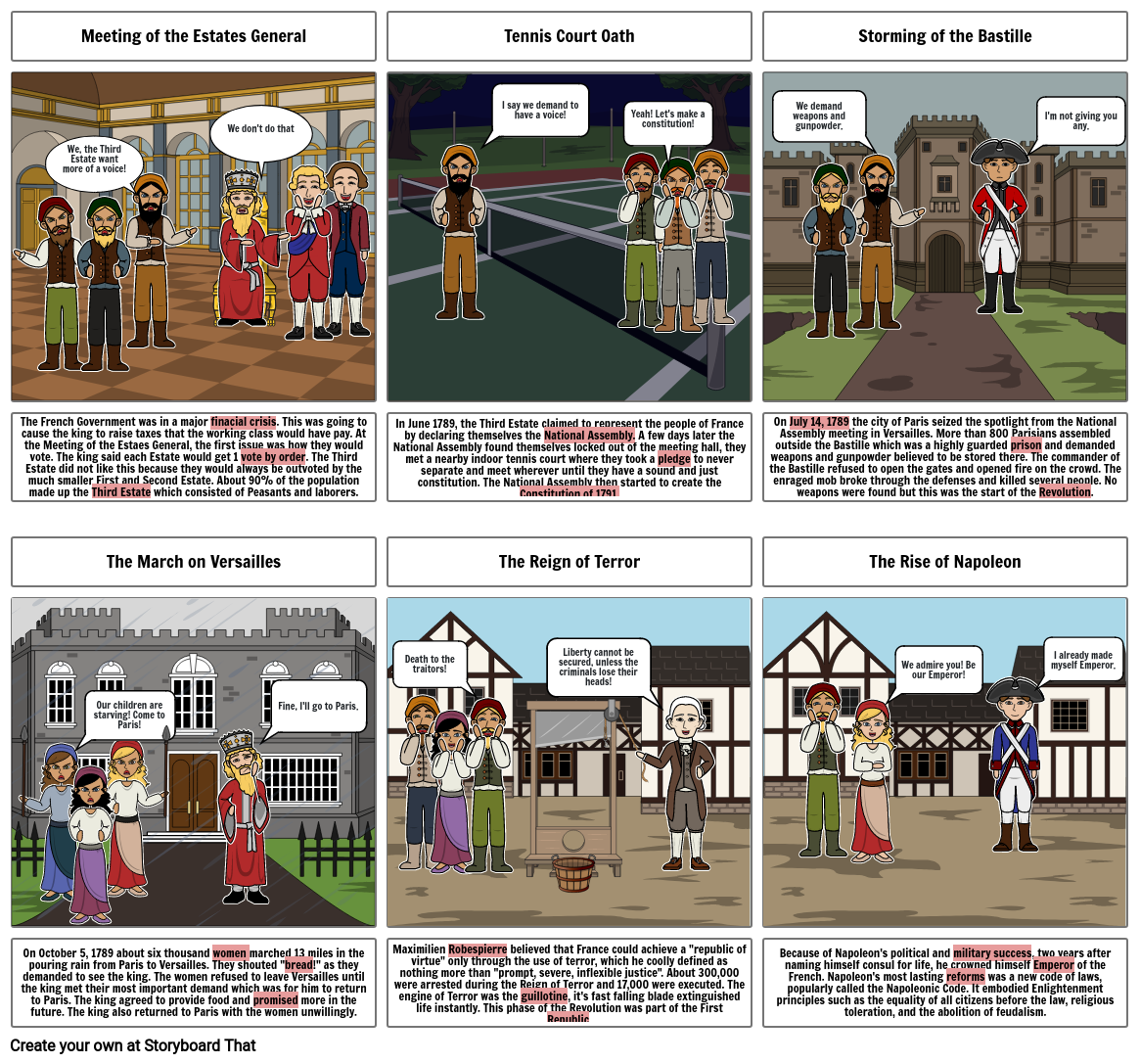French Revolution

Öykü Penceresi Metni
- Meeting of the Estates General
- We, the Third Estate want more of a voice!
- We don't do that
- Tennis Court Oath
- I say we demand to have a voice!
- Yeah! Let's make a constitution!
- Storming of the Bastille
- We demand weapons and gunpowder.
- I'm not giving you any.
- The French Government was in a major finacial crisis. This was going to cause the king to raise taxes that the working class would have pay. At the Meeting of the Estaes General, the first issue was how they would vote. The king said each Estate would get 1 vote by order. The Third Estate did not like this because they would always be outvoted by the much smaller First and Second Estate. About 90% of the population made up the Third Estate which consisted of Peasants and laborers.
- The March on Versailles
- Fine, I'll go to Paris.
- In June 1789, the Third Estate claimed to represent the people of France by declaring themselves the National Assembly. A few days later the National Assembly found themselves locked out of the meeting hall, they met a nearby indoor tennis court where they took a pledge to never separate and meet wherever until they have a sound and just constitution. The National Assembly then started to create the Constitution of 1791.
- The Reign of Terror
- Death to the traitors!
- Liberty cannot be secured, unless the criminals lose their heads!
- On July 14, 1789 the city of Paris seized the spotlight from the National Assembly meeting in Versailles. More than 800 Parisians assembled outside the Bastille which was a highly guarded prison and demanded weapons and gunpowder believed to be stored there. The commander of the Bastille refused to open the gates and opened fire on the crowd. The enraged mob broke through the defenses and killed several people. No weapons were found but this was the start of the Revolution.
- The Rise of Napoleon
- We admire you! Be our Emperor!
- I already made myself Emperor.
- On October 5, 1789 about six thousand women marched 13 miles in the pouring rain from Paris to Versailles. They shouted "bread!" as they demanded to see the king. The women refused to leave Versailles until the king met their most important demand which was for him to return to Paris. The king agreed to provide food and promised more in the future. The king also returned to Paris with the women unwillingly.
- Our children are starving! Come to Paris!
- Maximilien Robespierre believed that France could achieve a "republic of virtue" only through the use of terror, which he coolly defined as nothing more than "prompt, severe, inflexible justice". About 300,000 were arrested during the Reign of Terror and 17,000 were executed. The engine of Terror was the guillotine, it's fast falling blade extinguished life instantly. This phase of the Revolution was part of the First Republic.
- Because of Napoleon's political and military success, two years after naming himself consul for life, he crowned himself Emperor of the French. Napoleon's most lasting reforms was a new code of laws, popularly called the Napoleonic Code. It embodied Enlightenment principles such as the equality of all citizens before the law, religious toleration, and the abolition of feudalism.
30 Milyondan Fazla Storyboard Oluşturuldu

